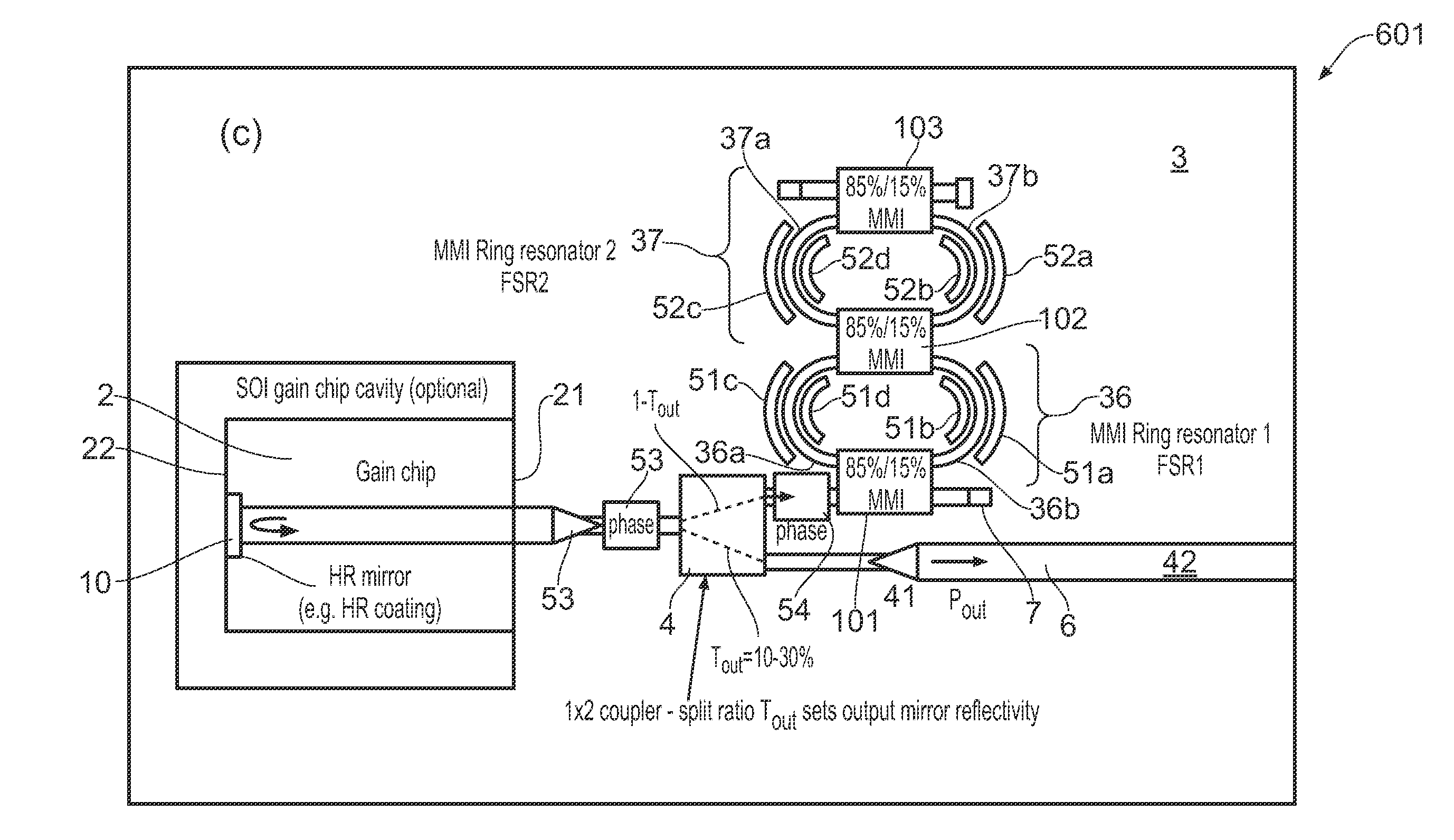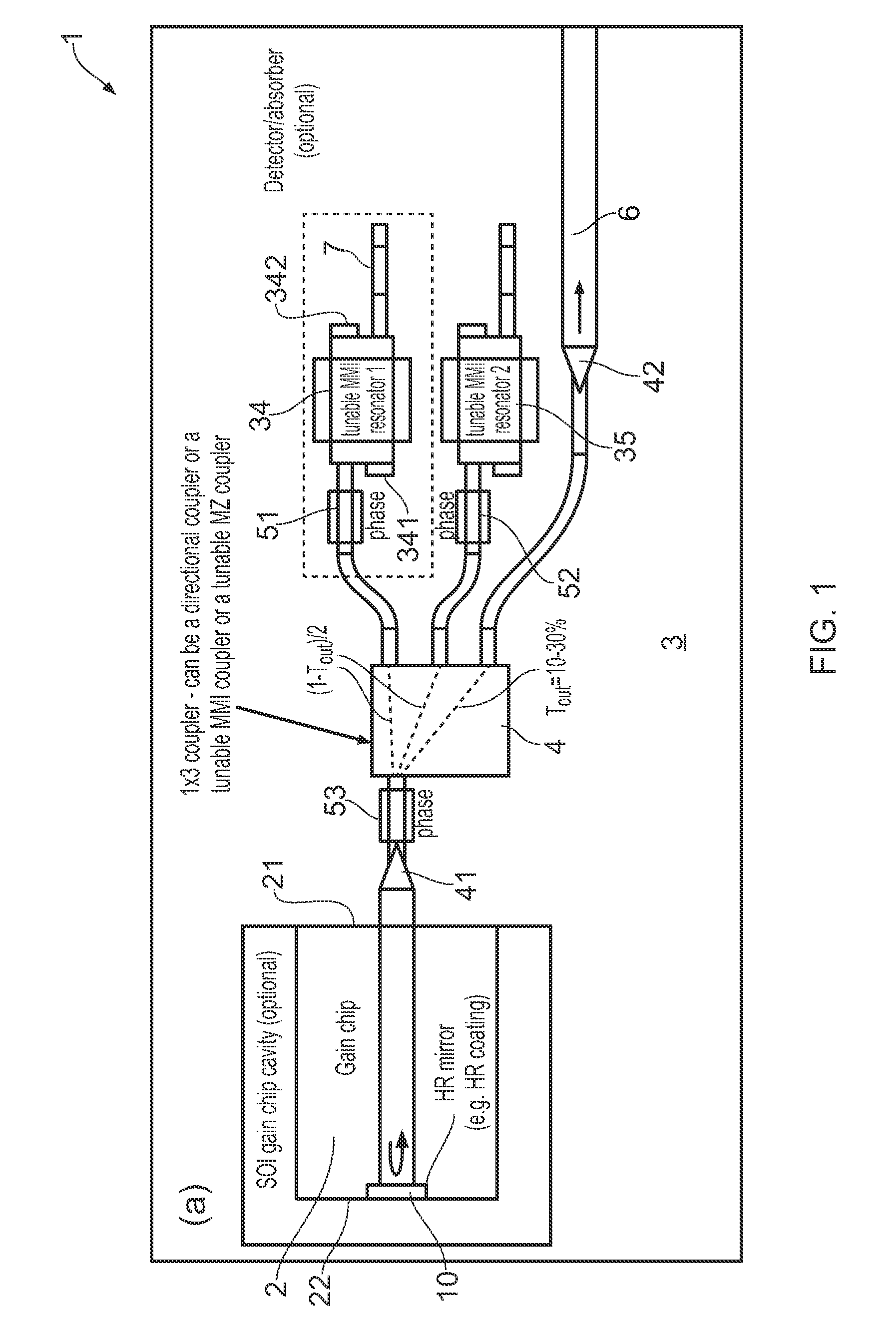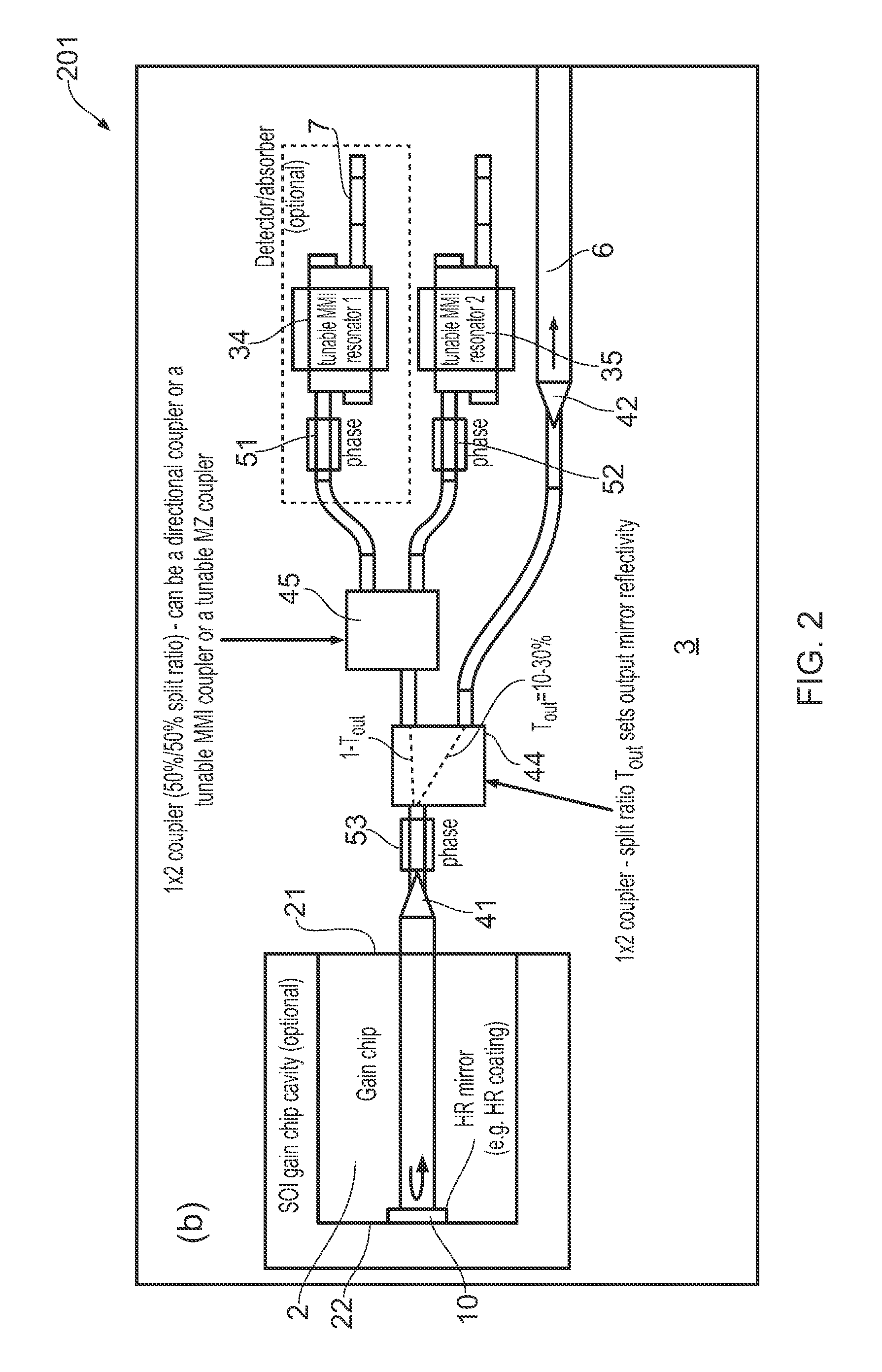Tunable SOI laser
a silicononinsulator and wavelength technology, applied in semiconductor lasers, instruments, optical elements, etc., can solve the problems of insufficient application, low efficiency, and high cost of manufacturing, and achieve the effect of reducing the distance between p and p, reducing the cost of manufacturing, and reducing the cost of production
- Summary
- Abstract
- Description
- Claims
- Application Information
AI Technical Summary
Benefits of technology
Problems solved by technology
Method used
Image
Examples
Embodiment Construction
[0161]Embodiments of the present invention which relate to SOI lasers including multimode interference devices are described below with reference to FIGS. 1 to 5.
[0162]Referring to FIG. 1, a wavelength tunable silicon-on-insulator (SOI) laser is shown, the laser having a laser cavity which is made up of a semiconductor gain medium, 2 and a phase-tunable waveguide platform, 3 coupled to the front end of the semiconductor gain medium. In the embodiment shown in FIG. 1, the semiconductor gain medium, 2 takes the form of a gain chip and the gain chip shown is located inside of an SOI gain chip cavity.
[0163]The phase-tunable waveguide platform includes a first multimode interference (MMI) device (MMI resonator device) 34 (as shown in FIG. 3), and a second MMI device (MMI resonator device), 35 in a parallel arrangement. Each MMI device includes a multi-mode waveguide; a first reflective surface, 341 partially covering one end of the multimode waveguide; and a second reflective surface, 34...
PUM
 Login to View More
Login to View More Abstract
Description
Claims
Application Information
 Login to View More
Login to View More - R&D
- Intellectual Property
- Life Sciences
- Materials
- Tech Scout
- Unparalleled Data Quality
- Higher Quality Content
- 60% Fewer Hallucinations
Browse by: Latest US Patents, China's latest patents, Technical Efficacy Thesaurus, Application Domain, Technology Topic, Popular Technical Reports.
© 2025 PatSnap. All rights reserved.Legal|Privacy policy|Modern Slavery Act Transparency Statement|Sitemap|About US| Contact US: help@patsnap.com



